Samsung Galaxy S20 Ultra vs. iPhone 15 Pro Max: A Comprehensive Comparison
The smartphone landscape is ever-evolving, with each new flagship setting benchmarks for technology, design, and user experience. The Samsung Galaxy S20 Ultra, introduced in 2020, was a technological marvel of its time, boasting a massive camera sensor and a feature-rich experience. Fast forward to 2023, and Apple’s iPhone 15 Pro Max stands as the pinnacle of Apple’s smartphone innovation, offering cutting-edge performance, camera prowess, and a refined ecosystem.
This article delves deep into a comparison between the Samsung Galaxy S20 Ultra and the iPhone 15 Pro Max, examining their strengths, weaknesses, and the philosophies that drive their respective manufacturers.
1. Design and Build Quality
Samsung Galaxy S20 Ultra
The S20 Ultra introduced a bold, industrial design, with a large rectangular camera bump dominating the rear. Its glass front and back, sandwiched by an aluminum frame, gave it a premium feel, though it was notably heavy and bulky at 222 grams. The display curved gently at the edges, contributing to a modern, immersive look but sometimes leading to accidental touches.
Key Features:
Gorilla Glass 6 (front and back)
Aluminum frame
IP68 dust/water resistance
Colors: Cosmic Black, Cosmic Gray
iPhone 15 Pro Max
Apple’s iPhone 15 Pro Max features a more refined, minimalist aesthetic. Its titanium frame not only reduces weight but also increases durability. The flat edges, introduced with the iPhone 12 series, remain, but the 15 Pro Max refines them with slightly curved edges for comfort. The camera array is less obtrusive than the S20 Ultra’s, and the overall device is thinner and lighter at about 221 grams.
Key Features:
Ceramic Shield front
Titanium frame
Textured matte glass back
IP68 dust/water resistance
Colors: Black Titanium, White Titanium, Blue Titanium, Natural Titanium
Verdict
While both phones exude premium quality, the iPhone 15 Pro Max’s titanium build and ergonomic improvements give it a slight edge in comfort and durability. The S20 Ultra’s design was bold for its time but now feels dated and bulkier compared to the refined iPhone.
Samsung Galaxy S20 Ultra

Samsung’s display technology is legendary, and the S20 Ultra showcased a 6.9-inch Dynamic AMOLED 2X panel with a 120Hz refresh rate (at 1080p resolution). The display is vibrant, with deep blacks, excellent contrast, and HDR10+ support. However, the 120Hz mode was limited to FHD+ resolution due to power constraints.
Specifications:
6.9-inch Dynamic AMOLED 2X
Resolution: 3200 x 1440 (WQHD+)
Refresh Rate: 120Hz (FHD+), 60Hz (QHD+)
HDR10+ support
511 ppi density
iPhone 15 Pro Max
The iPhone 15 Pro Max features a 6.7-inch Super Retina XDR OLED display with ProMotion, supporting adaptive refresh rates up to 120Hz at full resolution. Apple’s color calibration is industry-leading, and the display supports HDR10, Dolby Vision, and extreme brightness levels, peaking at 2000 nits for outdoor visibility.
Specifications:
6.7-inch Super Retina XDR OLED
Resolution: 2796 x 1290
Refresh Rate: 1–120Hz (adaptive)
HDR10, Dolby Vision
Up to 2000 nits peak brightness
Verdict
Samsung’s S20 Ultra display remains impressive, but the iPhone 15 Pro Max’s superior brightness, adaptive refresh rate, and color accuracy make it the more advanced panel. Apple’s implementation of ProMotion at full resolution is also more seamless.
3. Performance
Samsung Galaxy S20 Ultra
The S20 Ultra shipped with either the Qualcomm Snapdragon 865 (US) or Exynos 990 (global), paired with up to 16GB RAM and 512GB storage. While blazing fast in 2020, the Exynos variant lagged behind the Snapdragon in efficiency and graphics performance. The phone handled multitasking and gaming well but suffered from thermal throttling during extended heavy use.
Key Specs:
Snapdragon 865 / Exynos 990
12GB/16GB RAM
128GB/512GB storage (expandable via microSD)
iPhone 15 Pro Max
The iPhone 15 Pro Max is powered by Apple’s A17 Pro chip, built on a 3nm process, offering industry-leading performance and efficiency. With 8GB RAM, the iPhone’s tight hardware-software integration ensures smooth multitasking, gaming, and demanding tasks like 4K video editing. Storage options start at 256GB and go up to 1TB.
Key Specs:
Apple A17 Pro (3nm)
8GB RAM
256GB/512GB/1TB storage
Benchmarks and Real-World Use
Geekbench & AnTuTu: The A17 Pro outperforms the Snapdragon 865/Exynos 990 by a significant margin in both CPU and GPU tasks.
Gaming: The iPhone 15 Pro Max supports console-quality games, ray tracing, and sustained performance without significant thermal throttling.
Verdict
The iPhone 15 Pro Max is vastly superior in raw performance, thermal management, and real-world efficiency. The S20 Ultra, while still competent for everyday tasks, shows its age in comparison.
4. Camera Systems
Samsung Galaxy S20 Ultra
Samsung made headlines with the S20 Ultra’s camera, particularly its 108MP main sensor and 100x “Space Zoom.” The quad-camera setup included:
108MP wide (f/1.8, OIS)
48MP periscope telephoto (4x optical, 10x hybrid, 100x digital, OIS)
12MP ultrawide
0.3MP TOF 3D depth sensor
Strengths:
High-resolution shots with detail (in good light)
Impressive zoom range
Versatile camera app with Pro mode
Weaknesses:
Autofocus issues at launch (partially fixed via updates)
Over-sharpening and aggressive processing
100x zoom mostly a gimmick
iPhone 15 Pro Max

Apple’s iPhone 15 Pro Max features a triple-lens system with significant improvements in computational photography. The main sensor is 48MP, with a new tetra-prism periscope lens enabling 5x optical zoom.
48MP main (f/1.78, sensor-shift OIS)
12MP ultrawide (f/2.2, macro)
12MP periscope telephoto (5x optical, 25x digital, OIS)
LiDAR scanner for depth and AR
Strengths:
Natural color science, accurate skin tones
Excellent low-light and HDR performance
ProRAW and ProRes video support
Cinematic Mode, Action Mode
Weaknesses:
Lower maximum zoom than S20 Ultra (but higher quality at all levels)
Video Capabilities
S20 Ultra: 8K video at 24fps, 4K at 60fps, Super Steady Mode
iPhone 15 Pro Max: 4K at 60fps (all lenses), ProRes, Dolby Vision HDR, Log video, External SSD recording
Verdict
While the S20 Ultra’s camera was groundbreaking in 2020, the iPhone 15 Pro Max’s camera system is more refined, with better low-light performance, superior video capabilities, and more accurate colors. The S20 Ultra’s 100x zoom is unmatched, but mostly impractical.
5. Battery Life and Charging
Samsung Galaxy S20 Ultra
Battery: 5,000 mAh
Charging: 45W wired, 15W wireless, 4.5W reverse wireless
Real-world endurance: One full day with moderate use; heavy 120Hz/QHD+ usage drains faster
iPhone 15 Pro Max
Battery: ~4,400 mAh (Apple does not officially disclose capacity)
Charging: 27W wired, 15W MagSafe wireless, Qi2 support
Real-world endurance: 1.5 to 2 days on a charge, thanks to efficient A17 Pro chip and adaptive refresh rate
Verdict
Despite a smaller battery, the iPhone 15 Pro Max lasts longer due to efficiency gains. The S20 Ultra charges faster via wire, but the iPhone’s MagSafe ecosystem and Qi2 support add versatility.
6. Software and User Experience
Samsung Galaxy S20 Ultra
OS: Launched with Android 10 (One UI 2.1), upgradable to Android 13 (One UI 5)
Features: Customization, multitasking (split screen, pop-up view), Samsung DeX
Update Policy: 3 major OS updates, 4 years of security updates
Strengths:
Highly customizable interface
Feature-rich (Always-on Display, Edge Panels)
Samsung DeX for desktop-like experience
Weaknesses:
Some bloatware
Slower updates compared to Google/Apple
iPhone 15 Pro Max
OS: iOS 17 (launch), with at least 5 years of updates
Features: Focus Modes, Live Activities, seamless continuity with Mac/iPad, Dynamic Island
Strengths:
Smooth, consistent UI
Timely updates
Superior privacy controls
Deep ecosystem integration
Weaknesses:
Less customization than Android
Some limitations in file management
Verdict
iOS offers a more seamless, consistent, and secure experience, with longer update support. Samsung’s One UI is more customizable but can feel cluttered.
7. Ecosystem and Accessories

Samsung Galaxy S20 Ultra
Samsung’s ecosystem includes Galaxy Buds, Galaxy Watch, and SmartThings integration. DeX allows the S20 Ultra to be used as a desktop computer when connected to a monitor. However, the ecosystem is not as tightly integrated as Apple’s.
iPhone 15 Pro Max
Apple’s ecosystem is unmatched: AirPods, Apple Watch, iPad, Mac, and HomePod all work together seamlessly. Features like AirDrop, Handoff, Universal Clipboard, and Continuity Camera create a unified experience.
Verdict
Apple’s ecosystem is more cohesive, with better cross-device functionality and accessory support.
8. Security and Privacy
Samsung Galaxy S20 Ultra
Security: Ultrasonic fingerprint sensor (in-display), facial recognition (2D)
Privacy: Samsung Knox, Secure Folder
iPhone 15 Pro Max
Security: Face ID (3D facial recognition, highly secure)
Privacy: On-device processing, App Tracking Transparency, Secure Enclave
Verdict
Face ID is more secure than the S20 Ultra’s fingerprint sensor and facial recognition. Apple’s privacy policies and on-device processing offer greater peace of mind.
9. Connectivity and Future-Proofing
Samsung Galaxy S20 Ultra
5G (Sub-6, mmWave in select models)
Wi-Fi 6
Bluetooth 5.0
USB-C 3.2
microSD card slot (now rare in flagships)
iPhone 15 Pro Max
5G (all bands)
Wi-Fi 6E
Bluetooth 5.3
USB-C (finally replacing Lightning, supporting 10Gbps data transfer)
No expandable storage
Verdict
The iPhone 15 Pro Max is more future-proof with Wi-Fi 6E, faster USB-C, and longer software support. The S20 Ultra’s microSD slot is a plus for some users.
10. Price and Value
Samsung Galaxy S20 Ultra
Launch Price: $1,399 (128GB)
Current (2024): Significantly discounted, often available used/refurbished
iPhone 15 Pro Max
Launch Price: $1,199 (256GB)
Current (2024): Typically holds value better, with high resale prices
Verdict
The S20 Ultra is more affordable now but lacks long-term software support. The iPhone 15 Pro Max is expensive but offers better value retention and longer usability.
11. Unique Features and Innovations
Samsung Galaxy S20 Ultra
100x Space Zoom
Samsung DeX
Expandable storage
Reverse wireless charging
iPhone 15 Pro Max
Dynamic Island
ProRes and Log video recording
USB-C with external SSD support
Action and Cinematic Modes
12. Longevity and Support
S20 Ultra: Nearing end of official support; security updates may cease soon.
iPhone 15 Pro Max: Will receive updates for at least 5 years, ensuring longevity.
Which Should You Choose?
If you’re choosing between a used S20 Ultra and a new iPhone 15 Pro Max:
The iPhone 15 Pro Max is the clear winner in almost every category: performance, camera, battery life, software support, and ecosystem.
The S20 Ultra is still a capable device for those who value features like expandable storage, DeX, or are on a tight budget.
If you’re comparing the philosophies:
Samsung pushes hardware boundaries, often introducing bleeding-edge features first (high-res cameras, 100x zoom, DeX).
Apple focuses on refinement, ecosystem, and long-term support, with innovations in software and user experience.
The Samsung Galaxy S20 Ultra was a landmark phone in 2020, but the iPhone 15 Pro Max demonstrates just how far smartphones have come in a few short years. Apple’s relentless focus on integration, performance, and longevity makes the 15 Pro Max the superior choice for most users today. However, the S20 Ultra’s bold approach to hardware innovation deserves recognition for pushing the industry forward.
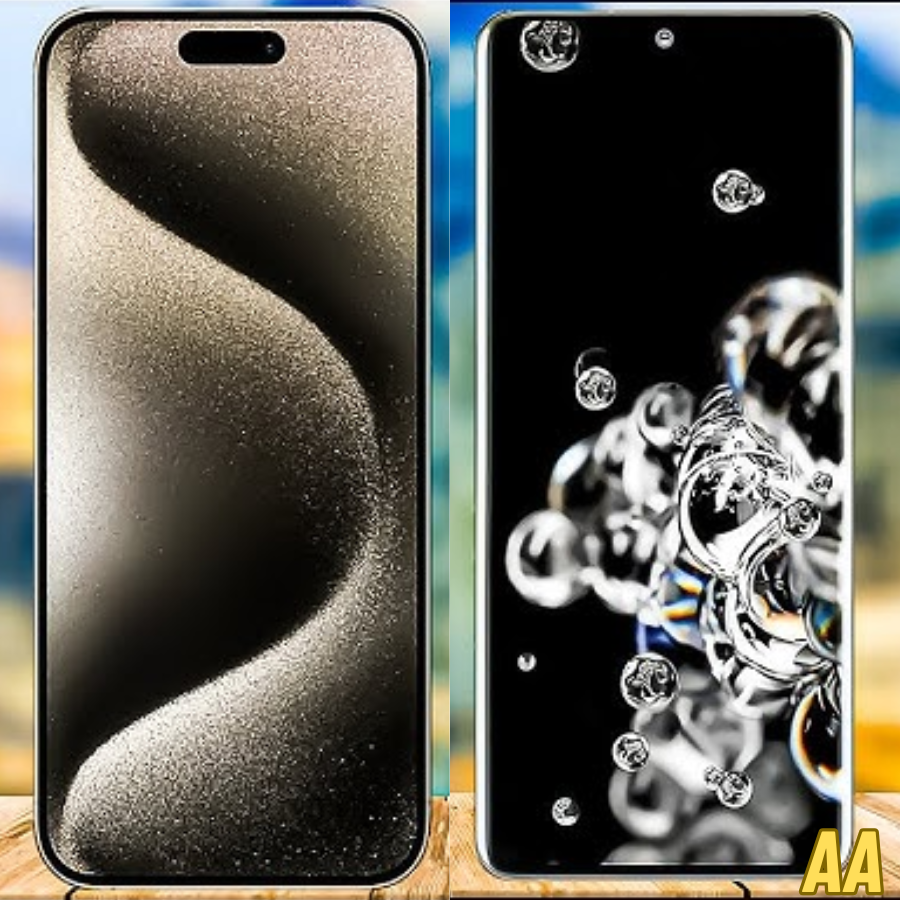
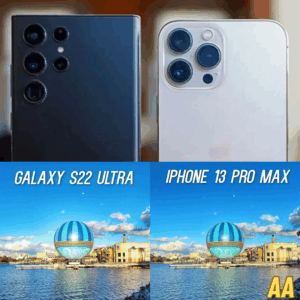
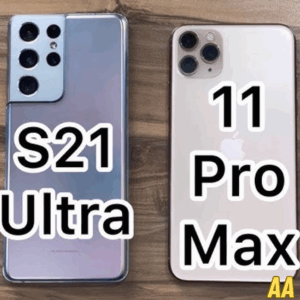
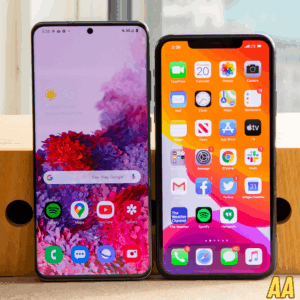

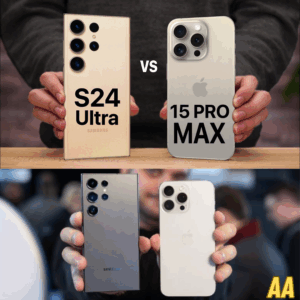

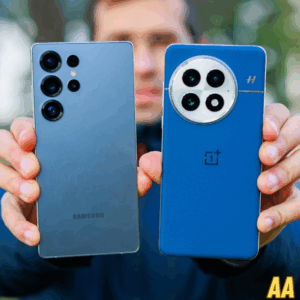
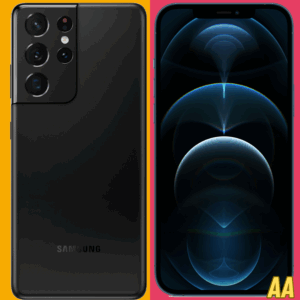
Trackbacks and Pingbacks